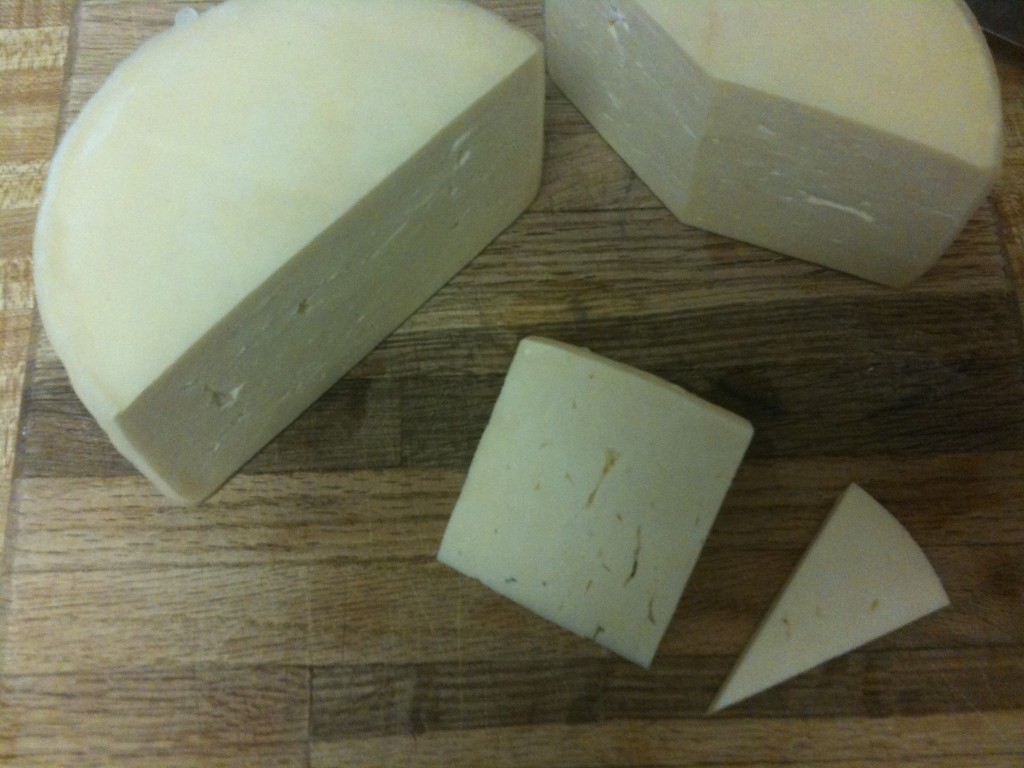Cheddar
I cut into the Cheddar from the All-Natur_L milk and was pleased with the results:
Sorry about the really old cutting board. My nice new one had some chopped veggies for dinner on it at the time.
For this cheese I used 3 gallons of All-Natur_L raw milk and slightly less than 1/8 teaspoon of double-strength microbial rennet. I filled the 1/8 teaspoon measure, and then poured two drops back into the bottle. Even so, it appears that I can cut back on the rennet a little more for the next cheese.
Tasting notes:
- The cheese is a little firm but is not at all crumbly. This is a big improvement in texture from my last cheddar. The cheese was squidgy, by which I mean that as my teeth sank into it I could hear it squeak faintly. Neither the recent Edam nor Gruyere had that particular texture.
- This cheddar is a bit too mild in flavor, though the taste is clearly cheddar. It could probably stand to age quite a bit.
- I liked the salt amount, which was about 2 and 2/3 tablespoons of sea salt for the 3 gallons of milk. I had been using 3 tablespoons, but some of my friends had said that the cheeses had been too salty. The CheeseWife™ thought this one could use more salt, but she has admitted to being a little too fond of salt. I will eagerly note other taster’s comments on the salt balance.
- I put a few slices on Triscuit crackers and briefly microwaved them. This cheese actually melted some. My prior cheeses would only soften a little. I attribute this to getting closer to the right amount of rennet. The melted cheese was more bold flavored. I can’t wait to try this on a hamburger!
- There were some holes in the cheese that I attribute to needing to mill the curds finer before pressing. I do not have a cheese mill, so I use a knife and cutting board.
- There was a little fluid weeping from the cheese when I first cut it. This looks like extra whey that I should have expelled before waxing the cheese. Real cheesemakers have a drying area and age their cheeses longer.
Yes I am making real cheese, but I still consider myself a newbie at this hobby. I understand that professional cheesemakers are only eligible to attempt to be certified as a master cheesemaker for a particular type of cheese after they have been making that cheese for more than 10 years. Cheese longa, vita brevis!

